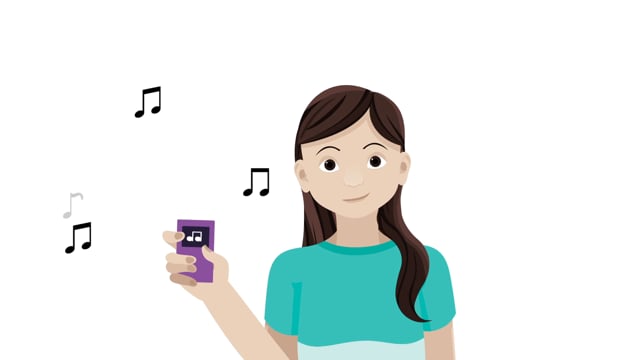Corporate Circle Members
40 Exchange Place, Suite 1902, New York, NY 10005
Phone
917.746.8300
Members Only
877.662.7627
© 2020 NAPNAP, Inc. All rights Reserved
Hearing loss makes it hard to hear or understand sounds. This happens when there is a problem with one or more parts of the ear, the nerves coming from the ears, or the hearing part of the brain.
Some people are born with hearing loss. But hearing loss may come on slowly over time or show up later in life. Hearing loss runs in some families, or may be caused by a birth defects, infections, or medicines that damage the ear. You can’t prevent these kinds of hearing loss.
But you can do something about noise-induced hearing loss. A sudden loud noise (like an explosion) or being around loud sounds over time can damage the tiny hair cells of the inner ear, making it hard to hear. If the noise around you is so loud that you must shout to be heard or you can’t hear the people around you, there is a chance that you’ll have some trouble hearing.
Have you ever heard a ringing or buzzing sound in your ears after going to a party, concert, or other really loud event? This is called tinnitus (pronounced: TIN-ih-tus). It usually gets better over a day or two. But tinnitus or a muffled feeling in your ears is a sign that there is some damage to the hair cells in your ear. Hair cells take sound waves and change them to electrical signals that are sent to the brain. When the hair cells are damaged, they can't send sound signals as well as they did before.
Tinnitus and hearing loss may not go away if you listen to loud music or hear loud sounds over and over again. That's why construction workers and airport workers wear ear protection. Lawn mowers and power tools, like chainsaws, are loud enough to cause tinnitus and hearing loss.
Listening to loud music a lot can cause problems over time, especially if you use headphones or earbuds. Some musicians have lost their hearing and have tinnitus — a real problem for someone who needs to hear to make music. That's why you may see more musicians wearing ear protection while they're playing.
The best way to prevent noise-induced hearing loss is to protect your ears from loud noises:

The ears gather sounds from our environment and turn them into messages for the brain to decode. Learn more in this video about the ears.

© 1995- The Nemours Foundation. KidsHealth® is a registered trademark of The Nemours Foundation. All rights reserved.
Images sourced by The Nemours Foundation and Getty Images.
New UsersCreate a User AccountBecome a Member |
Forgot PasswordForgot your password? Click here |
